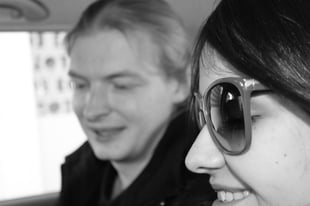

ANIMAFEST PRO | ANIMAFEST SCANNER IIII - Symposium for Contemporary Animation Studies | PANEL 1: THE CHANGING ROLES OF FESTIVALS
Grass-roots Animation Festival as a Tool for Social Change. Case study: Anibar, Kosovo – Michał Bobrowski, Olga Bobrowska - Jagiellonian University – Poland
06/06 TUE 10:50 - 11:20 Chilloutka, Ilica 15/1
The paper discusses the phenomenon of the alternative animation festivals that influence and reshape the public sphere on the example of an extraordinary grass-roots animated film festival, Anibar (Pejë, Kosovo). The authors intend to ponder over Anibar from the sociological perspective within the framework of film festival studies. This young, interdisciplinary field of reflection (as noted by Dina Iordanova in 2016, the discipline is about a decade old) derives from film studies, but has recently developed special attention to societal aspects of the phenomena (cf. C. Berry, L. Czach, C.H.-Y. Wong). It is necessary to underline that up until now the reflection omits festivals dedicated to animation art. In 2005,Vullnet Sanaja and Rron Bajri, a 13-year-old animation enthusiast from Peja, created an amateur film studio in a garage. They called it Anibar. Five years later, shortly after Vullnet’s18th birthday, they have registered an NGO through which they organized the first edition of Anibar. This virtually non-budget event took place in 2010 thanks to the persistence and passion of the two teenage activists.
Over the next few years, the festival dynamically progressed, gradually becoming an event of great importance for the community of the city which still bears scars of a brutal war of 1998-1999. The seventh edition of Anibar (August 2016) was a large-scale, fully professional undertaking characterized by excellent programming, an event which maintains the original youthful spirit of spontaneity (it was a collective effort of over 60 employees and volunteers whose average age did not exceed 20). The organizers are perfectly aware of the social and political significance of their activities that combine popularization of artistic animation with stimulation of the debate on vital problems like nationalisms, religious fundamentalisms, minority and women rights, ecology. Their long-term strategy assumes opening of animation department in Peja as a branch of the University in Prishtina.
Olga Bobrowska, Ph.D. candidate, specialized in classic Chinese animated film, an author of academic articles on the subjects of Polish and Chinese animation. She is the festival director of StopTrik IFF, a festival dedicated to stop-motion animation, a collaborator of festivals Animateka (Ljubljana), Etiuda&Anima (Kraków) and Krakow Film Festival, a contributor of Zippy Frames.
Michał Bobrowski, PhD in film studies. Programme Director of StopTrik IFF and a collaborator of the festivals Animateka (Ljubljana) and Etiuda&Anima (Kraków). Lecturer at Jagiellonian University, curator, cultural activist and author of numerous articles dedicated to classic Japanese and American cinema, as well as animation.
Olga and Michał Bobrowski are the co-editors of the monograph Obsession Perversion Rebellion. Twisted Dreams of Central European Animation.


